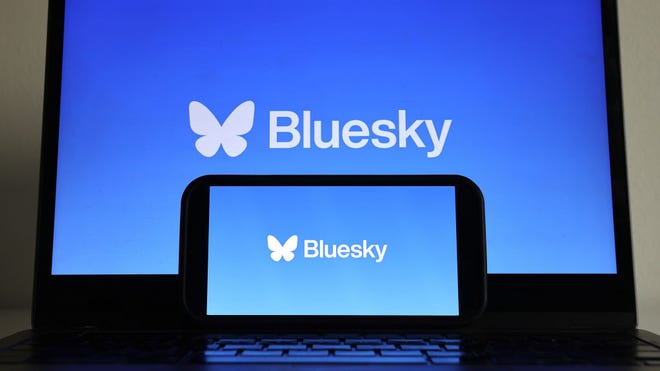Relatively new social media platform Bluesky continues to receive an influx of users who seek to flee X, formerly Twitter, for what critics describe as a toxic environment under Elon Musk’s direction.
When Musk originally purchased Twitter for $44 billion in October 2022 and sought to overhaul the platform to fit his “free speech absolutist” vision, several platforms old and new vied to become the landing place for people looking to leave the site. Mastodon and Instagram’s Threads were some of the original top contenders in the race, but none have been able to secure the position as X’s top competition.
Changes to the platform rolled out during Musk’s tenure include neutering the block feature and making verification a payable subscription. The CEO has also been increasingly vocal in support of right-wing issues and President-elect Donald Trump. And some users deride the content on the platform, specifically the prevalence of dis- and misinformation, conspiracy theories, harassment and abuse, a sharp rise in hate speech, and the platforming of Nazi and hate groups.
Election Day appeared to be the last straw for many who were turned off by Musk’s support of Trump or the political discourse on the app. Now, Trump has tapped Musk for a government position in his newly-formed Department of Government Efficiency, or DOGE.
As a result, Bluesky has enjoyed a rush of millions of new users. Here’s what to know about the social media site.
Bluesky sees user gains in the millions after the election
Frustrated with the content on X, Musk’s frequent changes to the platform and his vocal association with Trump and other far-right figures prompted users to leave the site en mass after the election.
While Election Day marked a banner day for usage of the platform, X saw more than 115,000 account deactivations on the day after, according to Similarweb data provided to NBC News, reportedly the most since Musk took over the app.
Bluesky, on the other hand, saw an explosion of more than 2.5 million new signups in the week following the election, spokesperson Emily Liu previously said in an emailed statement to USA TODAY. As of Wednesday, there were over 20.7 million users and counting on the platform, according to a tracker touted by Bluesky employees (bcounter.nat.vg), equating to about 8 user signups per second.
Liu also said the platform is seeing record activity in all metrics, including likes and follows.
“Users have also been sharing feedback that they’re receiving more engagement (and higher-quality engagement) on Bluesky than on other platforms despite initially having more followers elsewhere,” she said. “And most importantly, that they’re having fun!”
While X did see an exodus, including of some prominent accounts like celebs Jamie Lee Curtis, Don Lemon, Lizzo and Stephen King and news source The Guardian, which has roughly 27 million followers across accounts on the platform, XData reported Musk’s app saw a record-breaking 942 million posts worldwide and a 15.5% increase in new user sign-ups on Election Day and the following day.
What is Bluesky?
Bluesky is a social media app that, at its core, is largely similiar to X, formerly known as Twitter. Like Twitter, users can post short, 300-character messages, images and videos. Users can then repost, reply, quote and like posts.
“Unlike other closed platforms, Bluesky is an open social network that gives users choice, developers the freedom to build, and creators independence from platforms,” Liu said.

The app was initially an internal Twitter project led by then-CEO and co-founder Jack Dorsey in 2019 in an attempt to “decentralize” the platform, or allow users to create their own server. It launched as its own website separate from Twitter in 2021 and was launched as an invite-only beta to the public in 2023. It later dropped its invite-only status in February 2024.
Who owns Bluesky?
While Bluesky was originally a Dorsey concept, he confirmed he left its board of directors in May and deleted his own account.
According to Bluesky itself, its is now partly owned by CEO Jay Graber and has a board of directors that includes Jabber inventor Jeremie Miller, Techdirt founder Mike Masnick and Blockchain Capital general partner Kinjal Shah.
This post was originally published on this site be sure to check out more of their content









